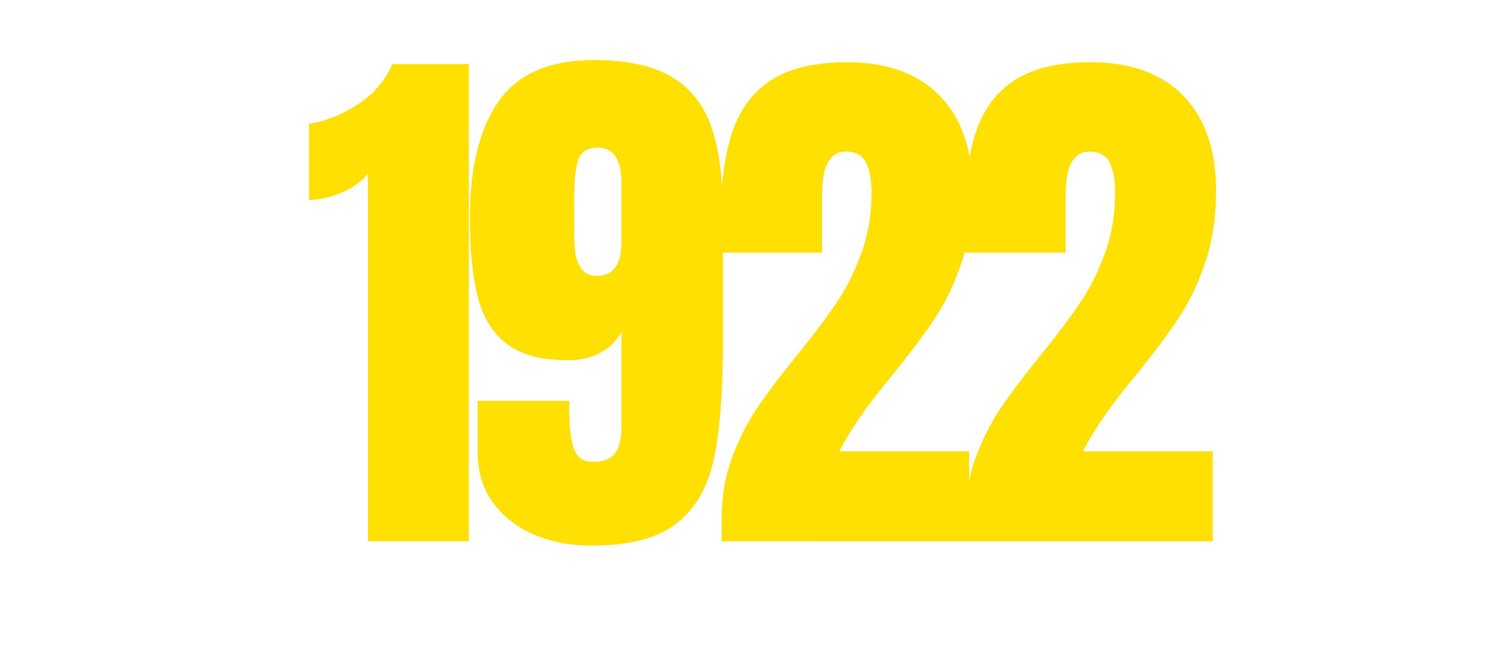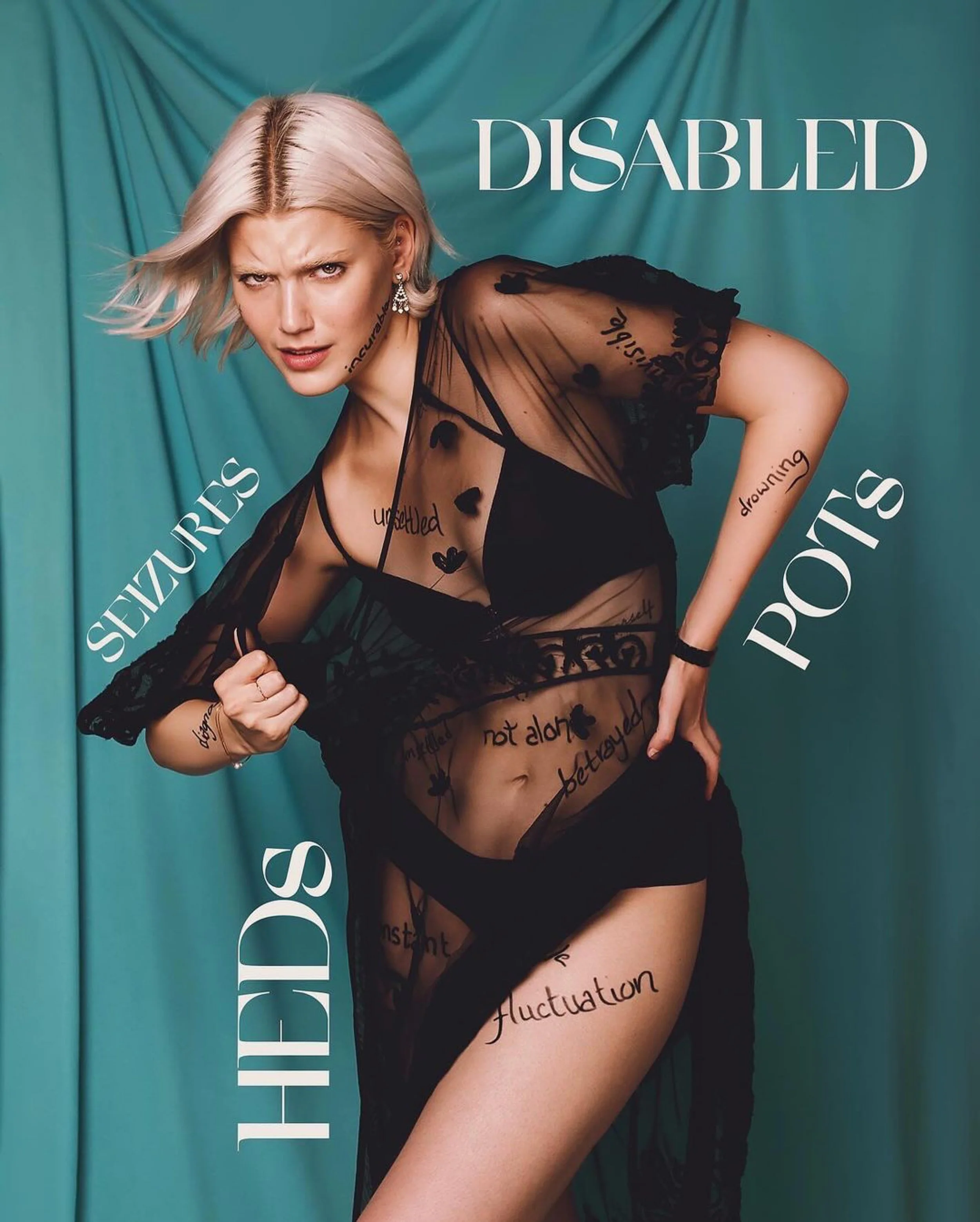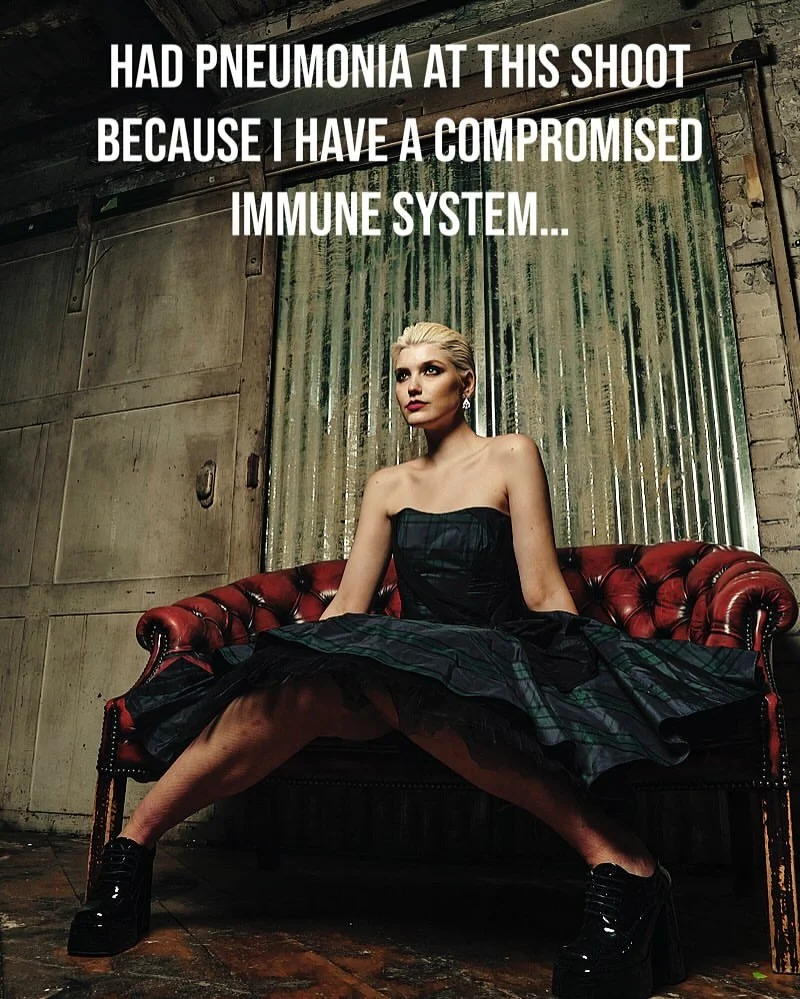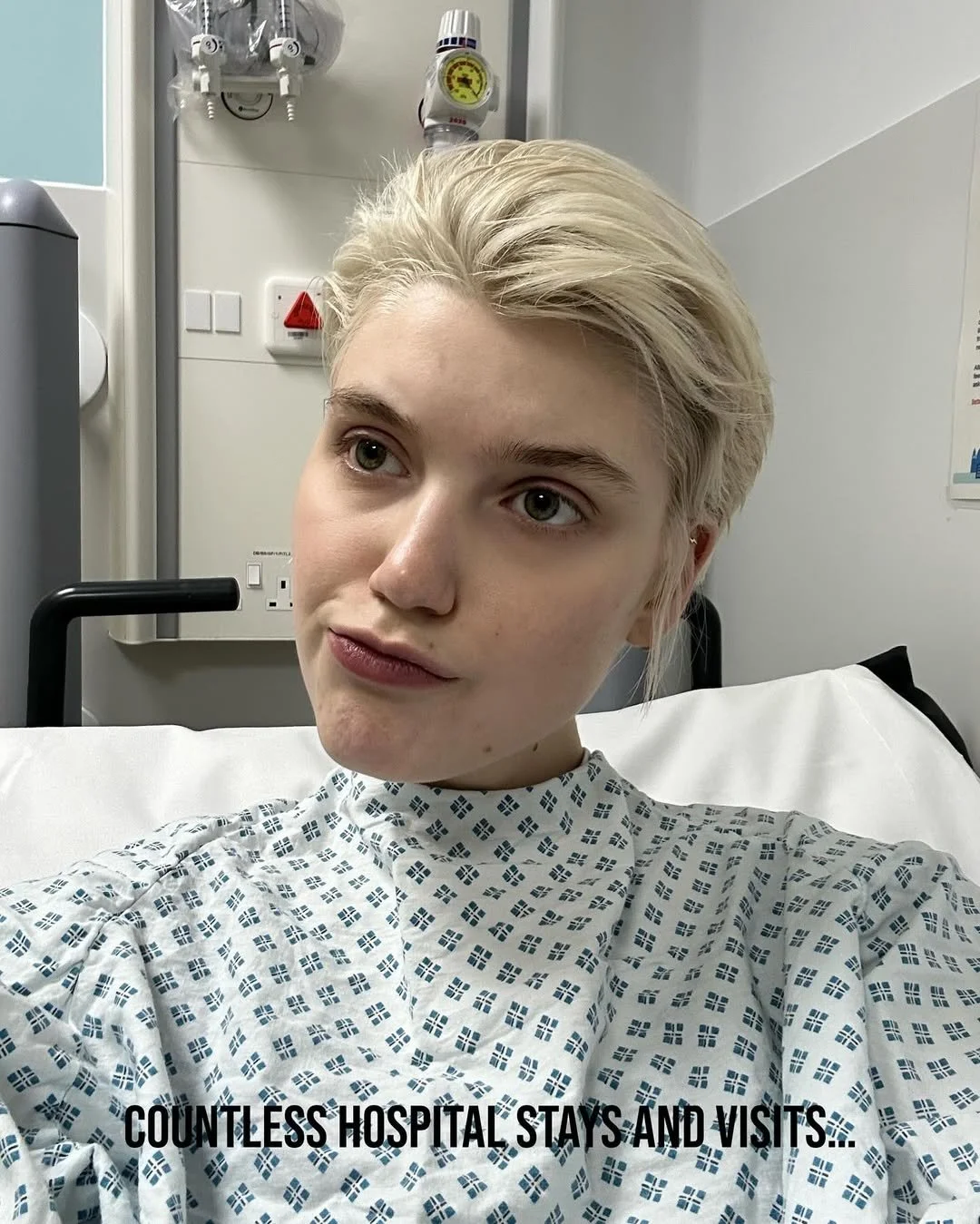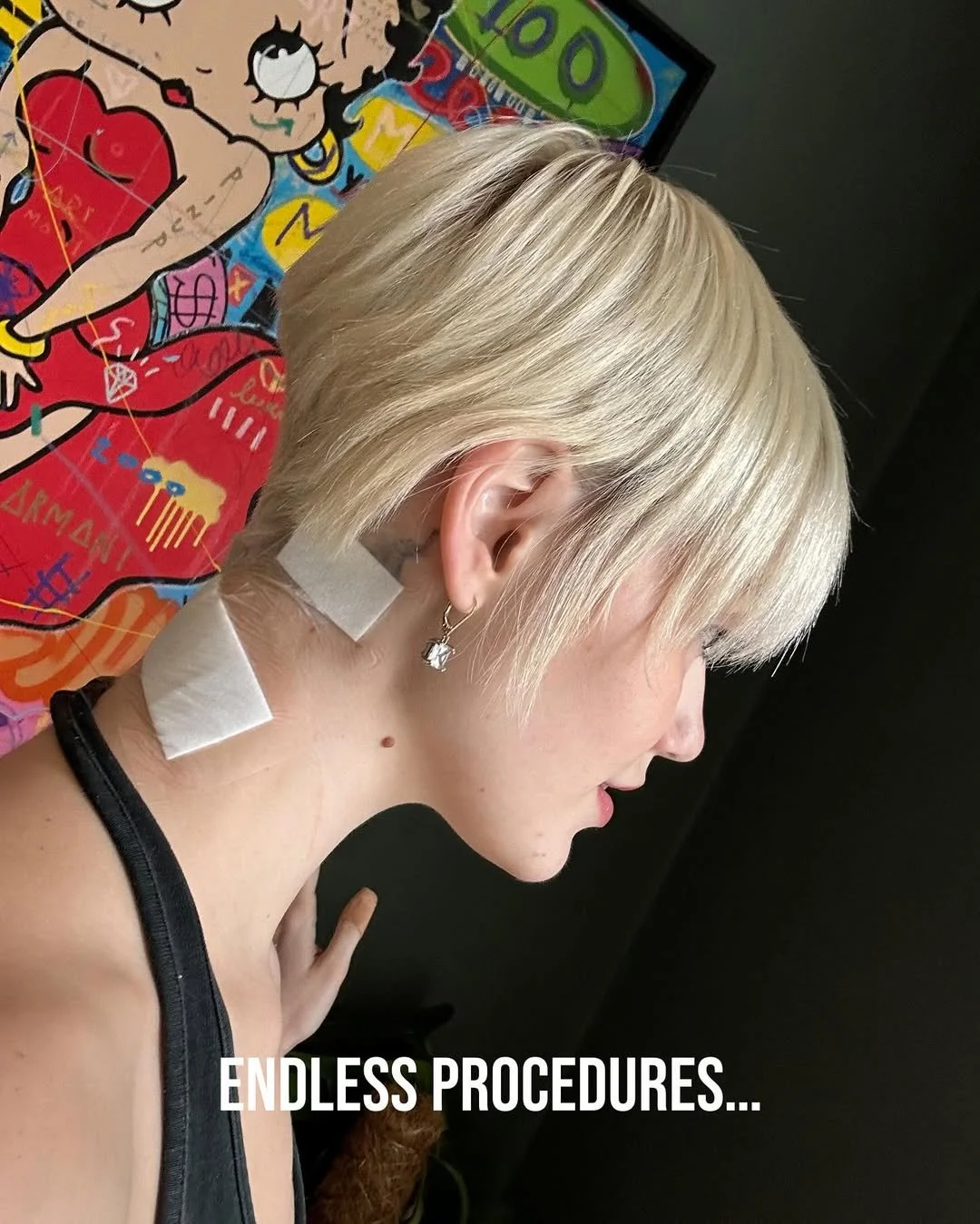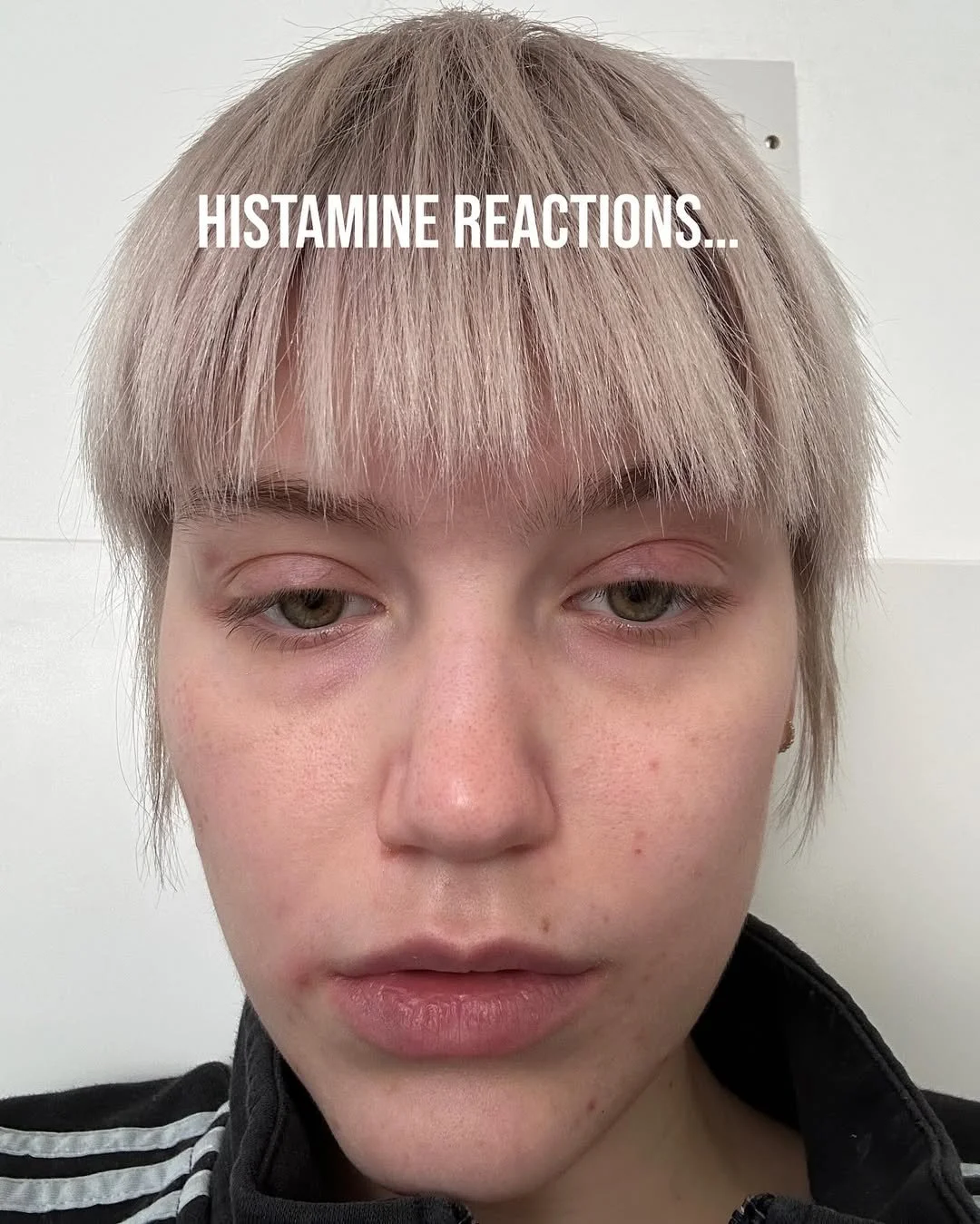“Not disabled enough” - PIP is a lifeline not a handout
Disabled model Emily Massey shares her story on living with multiple complex and invisible conditions in light of the recent disability cuts.
By Emily Massey
Displaced. Betrayed. Drowning.
These were the words painted across my body in a shoot with the incredible disabled photographer, Becky Gannon—raw, unfiltered, and heartbreakingly accurate. They reflect what it feels like to be disabled in Britain today. With the government’s proposed changes to Personal Independence Payment (PIP), another lifeline is being stripped away. For many of us, PIP isn’t just financial support. It’s the difference between surviving and actually living.
I live with multiple complex and invisible conditions: Hypermobile Ehlers-Danlos Syndrome (HEDS), Postural Orthostatic Tachycardia Syndrome (POTS), chronic migraines, seizures, and more. On paper, I “look fine.” I even model professionally. But what people don’t see is the pain, the preparation, and the payback.
They don’t see that a single photoshoot can leave me in bed for days. That I’ve fainted and seized in public toilets, on public transport, behind the scenes at jobs. That I’ve had to crawl because standing wasn’t safe. That brushing my hair can feel impossible when my fatigue flares. That I wear a medical bracelet and/or lanyard outlining my seizure plan—and that it’s displayed on my phone’s emergency call screen, just in case.
I live a carefully managed life—built on medication schedules, pacing strategies, mobility aids, and an exhausting amount of planning just to stay afloat.
And yet, under the new proposals, I might not qualify for PIP.
The system has always been brutal—forcing disabled people to constantly prove our suffering to assessors with little to no medical training. But now, the goalposts are shifting even further. Support is becoming more inaccessible for the very people who need it most.
I’m scared. Not just for myself, but for our community—those who are already stretched to breaking point. PIP helps cover the extra costs we face: medications, therapies, adaptive equipment, support for daily tasks, or simply the reality that we may not be able to work full time—or at all.
I’ve been fortunate enough to work. But every job takes a toll. I have to plan meticulously, recover for days, and often push through when I shouldn’t—because I’m scared of being seen as unreliable or lazy. But pushing through means flare-ups, hospital visits, and sometimes, total burnout. There’s no safety net. PIP was supposed to be that.
My symptoms are only manageable because of expensive medications. Without them, I’d be operating at maybe 20%—completely unable to function, let alone work. This is what many don’t see: we aren’t thriving, we’re surviving—with scaffolding that’s now being kicked out from under us.
I’ve had bollards slammed in my face across nearly every path I’ve tried to walk. I lost a restaurant job I loved because I could no longer be customer-facing due to seizures. I was asked to leave university—not for my own safety, but because I was seen as a “welfare risk” to others. A typical 9–5 job isn’t even imaginable. Brain fog, pain, and fatigue would flatten me by midday. But none of that is visible on paper.
These proposed changes send a clear message: unless you’re visibly suffering all the time, you’re not “disabled enough.” But disability doesn’t look one way. It looks like good days and bad days. Like bright makeup and quiet agony. Like doing your best—and being told it still doesn’t count.
We’re not just fighting our conditions. We’re fighting to be heard. To be seen. To be believed.
This isn’t just about policy—it’s about people. It’s about real lives. People like me, who may not be able to keep going without support. If you’re able-bodied, don’t look away. Ask how you can help. Speak up. Stand with us.
Because this fight is about the kind of society we want to live in. One where everyone is valued. One where no one gets left behind.
The Government has proposed £5 billion in benefits cuts. These cuts will specifically target disability benefits, like Personal Independence Payment (PIP) and the health component of Universal Credit (UC). These proposals will see the biggest disability benefits cuts on record, making it harder for disabled people to access the necessities they all need and deserve.
If like us you’re horrified by these cuts then take action – write to your MP, respond to the consultation, and attend a protest. You can find more details on how on the Disability Rights UK website.
Read The Department by disabled journalist John Pring who has meticulously pieced together how the DWP ignored pleas to correct fatal flaws in the social security system and covered up its role in the deaths of hundreds, if not thousands, of disabled people. Government austerity doesn’t just harm disabled people - it kills them too.
And most importantly - listen to disabled people, advocate for them and don’t give up the fight.
FULL IMAGE CREDITS:
Andrew Lam @ilusphotography
Becky Gannon @rega_photography
Danny Gaska @danny_gaska_photography
Keeran Marquis @kdp.marquis
Tianna J-Williams @tiannajwilliamsphotography
